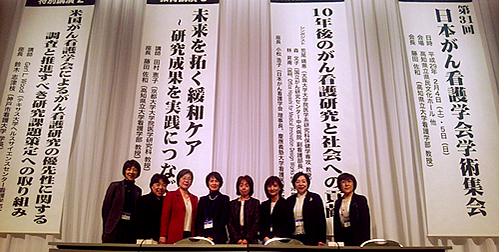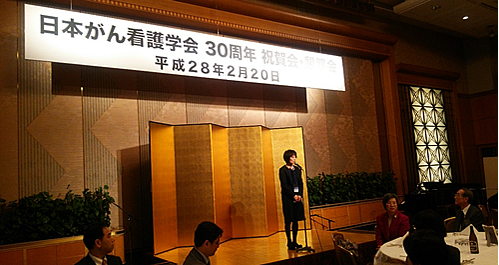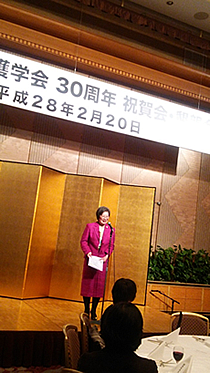JSCN ACADEMIC CONFERENCES
- Report on the 34th Annual Conference of the Japanese Society of Cancer Nursing
- Report on the 33rd Annual Conference of the Japanese Society of Cancer Nursing
- Report on the 32nd Annual Conference of the Japanese Society of Cancer Nursing
- Report on the 31st Annual Conference of the Japanese Society of Cancer Nursing
- Report on the 30th Annual Conference of the Japanese Society of Cancer Nursing
Report on the 34th Annual Conference of the Japanese Society of Cancer Nursing
The 34th Annual Conference of the Japanese Society of Cancer Nursing was held on February 22 and 23, 2020 at Tokyo International Forum, Tokyo, with Ms. Chiharu Arakawa (Director of Nursing Department, Showa University Hospital・Showa University Hospital East Branch) serving as chairperson.
The theme of the conference was “Helping cancer survivors live better with cancer: Diversity and deepening of cancer nursing”. The conference was managed successfully with keeping prevention of COVID-19, with more than 4,300 participants who were mainly domestic oncology nurses, educators, and researchers. Although some programs and presentations were cancelled, 129 oral and 326 poster research presentations were provided.
The conference focused on supporting patients with cancer to live a better life for themselves. Programs were constructed from various perspectives to address to several issues to be solved. The topics of lectures and symposiums were including patient advocacy, decision-making on cancer therapy, nursing management, local cooperation, supports based on patients’ life stage, and care for patients receiving innovative treatment (ex., immunotherapy and precision medicine).
The International Activities Committee held a session on February 23rd, 2020, entitled “What can we do in the age of precision medicine for cancer patients?”. The speaker was Dr. Chieko Tamura who was working as a genetic counselor in the medical institutions. In the lecture, Dr. Tamura talked about current status of precision medicine for cancer patients in Japan and the United States. Dr. Tamura pointed out that patients and healthcare professionals in Japan were overwhelmed and shrunk by the situation that hoping for precision medicine in the severe conditions of patients with cancer and possibility of revealing the genomic information to their families. In addition, Dr. Tamura talked about the situation in the United States that genetic information would be used to discuss the options of diagnostic tests and prevent cancer occurrence. Dr. Tamura suggested that oncology nurses should have a role of telling patients that knowing genetic information could provide greater potential for medical care they could receive.
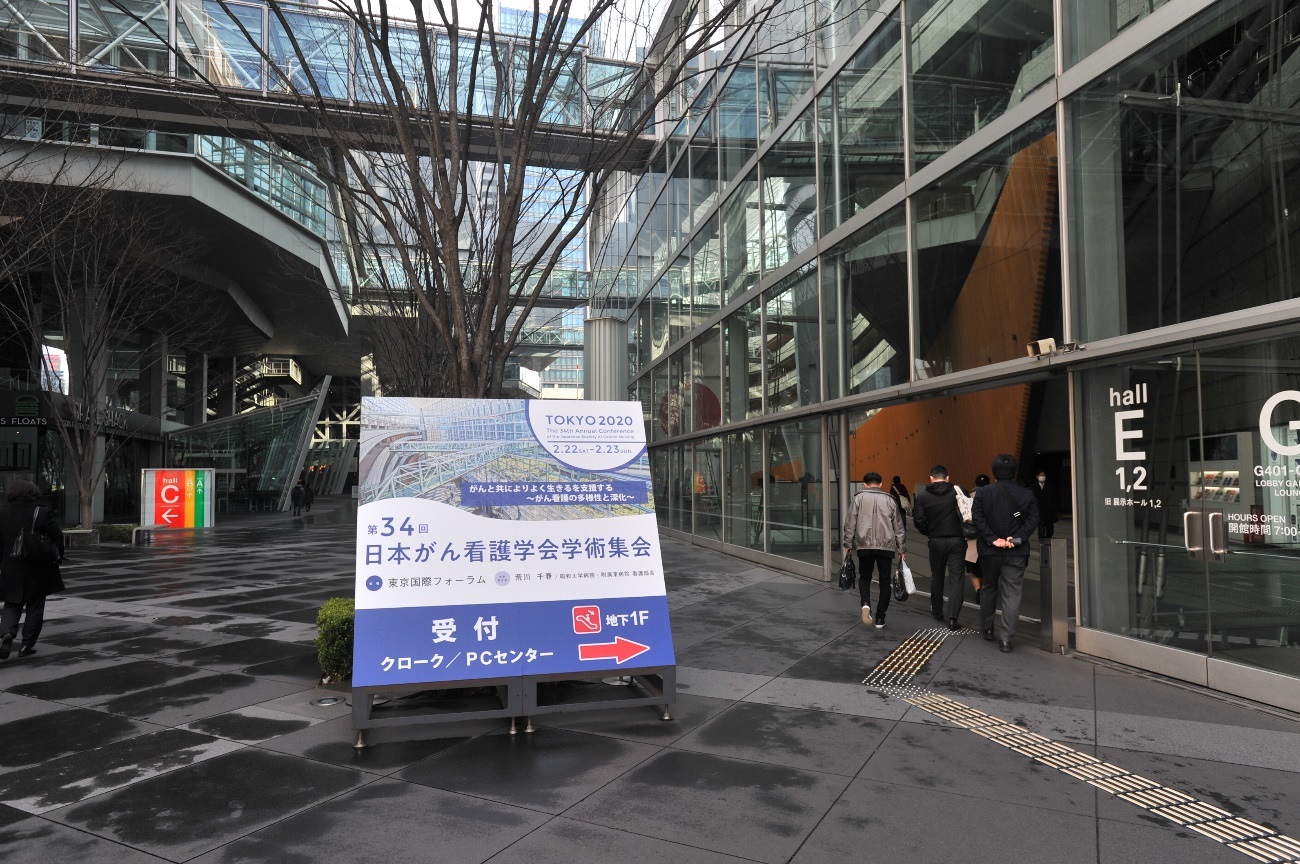
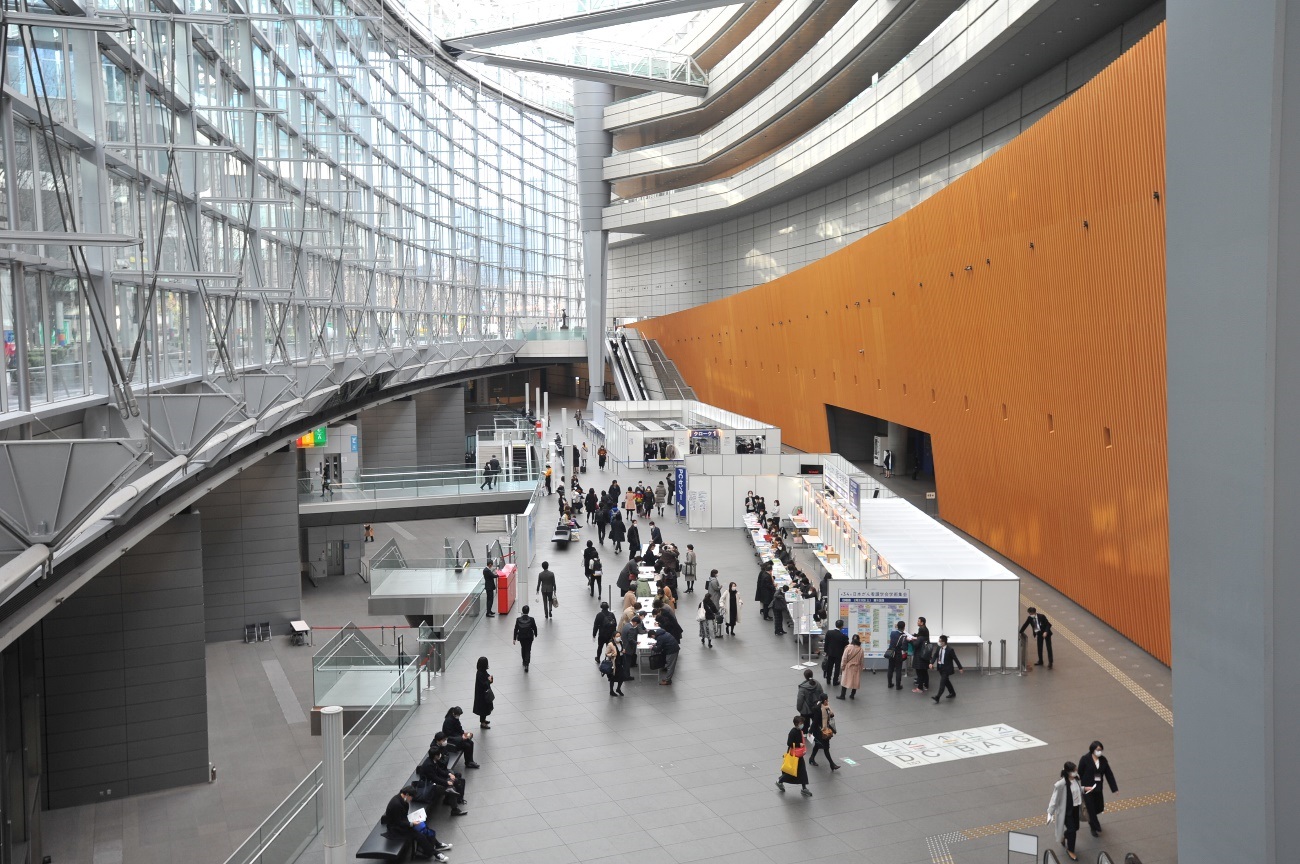
Report on the 33rd Annual Conference of the Japanese Society of Cancer Nursing
The 33rd Annual Conference of the Japanese Society of Cancer Nursing was held on February 23 and 24, 2019, with Dr. Hiroko Kokuhu (Professor, Graduate School of Health Sciences, Kumamoto University) serving as chairperson.
The theme of the conference was “Cancer Nursing that supports the individual needs of patients: Creation from the transmission of specialized knowledge and skills. The conference was successful with more than 4,700 participants in attendance. The attendee was mainly domestic oncology nurses, educators, researchers, and nursing students, and there were 132 oral and 382 poster presentations.
The conference is aimed exchanging information and providing many lectures, symposiums, and presentations in the area of the cancer nursing education and research. The examples of the subjects discussed at the conference are below.
- How should we inherit the specialized knowledge and skills that have been accumulated in a domain of cancer nursing science?
- What is required for cancer nursing in the future?
- What can we do to support patients’ individual needs?
- How can we oncology nurses contribute to the Japanese society?
The International Activities Committee held a panel discussion on February 24th, 2019, entitled “Attending at International Conferences: The messages from the nurses who have participated in International Conferences”. Three speakers, Ms. Furuta, C (RN, Kanagawa Cancer Center), Ms. Nagasaki, R (RN, Cancer Institute Hospital of Japanese Foundation for Cancer Research), and Ms. Chiba, I (RN, National Cancer Center Hospital East), presented their experience as panelists. They talked how they prepared for the conference, and discussed how attractive and interesting the international academic conference was.
Ms. Furuta talked about her experience of unexpected participation at the 19th International Conference on Cancer Nursing as “Tough times bring opportunity.” Ms. Nagasaki talked about her experience of poster presentation at the 10th ICN NP/APN Conference 2018 with the support from her supervisor. Ms. Chiba presented her experience of the oral presentation at the 22nd International Conference on Cancer Nursing.
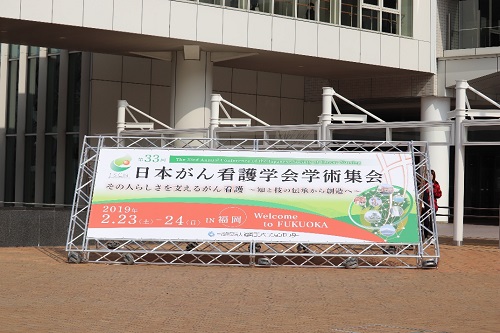
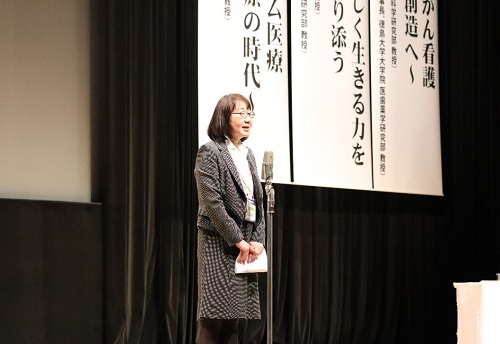
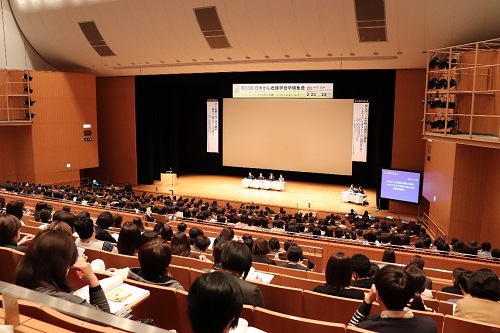
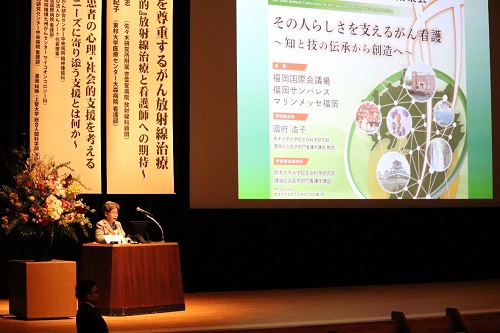
Report on the 32nd Annual Conference of the Japanese Society of Cancer Nursing
The 32nd Annual Conference of the Japanese Society of Cancer Nursing was held on February 3 and 4, 2018, with Ms. Kyoko Kayano (Director of Nursing Department, Chiba Cancer Center) serving as chairperson.
The theme of the conference was “Cancer Nursing Required in the Era of Change: Reconsideration Regarding Nursing Care to Support Patients’ Daily Life and Dignity”. Along with responding to the advancement of medicine and cancer treatment, cancer nursing plays an important role in supporting patients’ self-care abilities, at the same time respecting the dignity and values of patients and their families. This conference was held to consider and discuss what nurses can and should do to fulfill such roles in cooperation with a variety of healthcare teams. The conference was successful, with more than 4,800 participants in attendance; mainly domestic cancer nurses, educators, researchers, and nursing students.
The International Activities Committee held a symposium on Sunday, February 4th, 2018, entitled “The Appeal of International Conferences: The Voices from the Participants”. Three speakers, Ms. Tomoko Izawa (Associate professor, Department of Human Health Sciences, Kyoto University Graduate School of Medicine/Certified nurse specialist in cancer nursing), Dr. Miho Suzuki (Vice director of nursing, Cancer Institute Hospital of Japanese Foundation for Cancer Research), and Ms. Miwako Eto (Bell-land General Hospital/Certified nurse specialist in cancer nursing), shared their experience at the symposium. They talked how they prepared their presentation and how attractive and interesting the international academic conference they attended was. There were 55 attendees including operating personnel.
Ms. Izawa spoke about the contents of her presentations she made at the International Conference on Cancer Nursing (ICCN) 2016 and East Asian Form of Nursing Scholar (EAFONS) 2017, and shared her experience of socializing with nurse researchers from other countries, in her talk entitled "Motivated Preparation - Experience in ICCN 2016 and EAFONS 2017." In Dr. Suzuki’s talk entitled "Introducing the History of Oncology Nursing in Japan at Asian Oncology Nursing Society (AONS) 2017," the history of Japanese Society of Cancer Nursing, the details of the medical insurance fees related to cancer nursing, and the practice of nurse specialists in cancer nursing in Japan were introduced with some photographs. Ms. Eto’s talk was entitled "Cancer Nursing Beyond Language – Participation in ICCN 2017," and reported the results of the survey on the bowel dysfunction and ways of coping this symptom during cancer treatment. She said to have learned the necessity to emphasize the cultures and values that the patients have.
The questions from the attendees were how to prepare for the presentation at an international conference, and how clinical nurses could utilize what they learned at an international conference in their practice. Ms. Eto answered that it is necessary to incorporate the elements of culture into current nursing intervention studies and to refine the intervention methods according to the opinions of experts and research participants. In addition, she told that the significance of clinical nurse’s participation in an international conference were to expand and deepen the perspective of nursing, and to see the nursing subjectively with variety of experience, value, and culture.
Here are the attendees’ feedback: "Participation in this symposium gave me a chance to think about my own participation in the future. I would try hard to make an oral presentation if there was an opportunity," "I wondered what the appeal of international activities were. I would attend the socializing event at conference first," and "I think that international activities as a catalyst are needed for my hospital to change our clinical practice." It was a meaningful symposium.
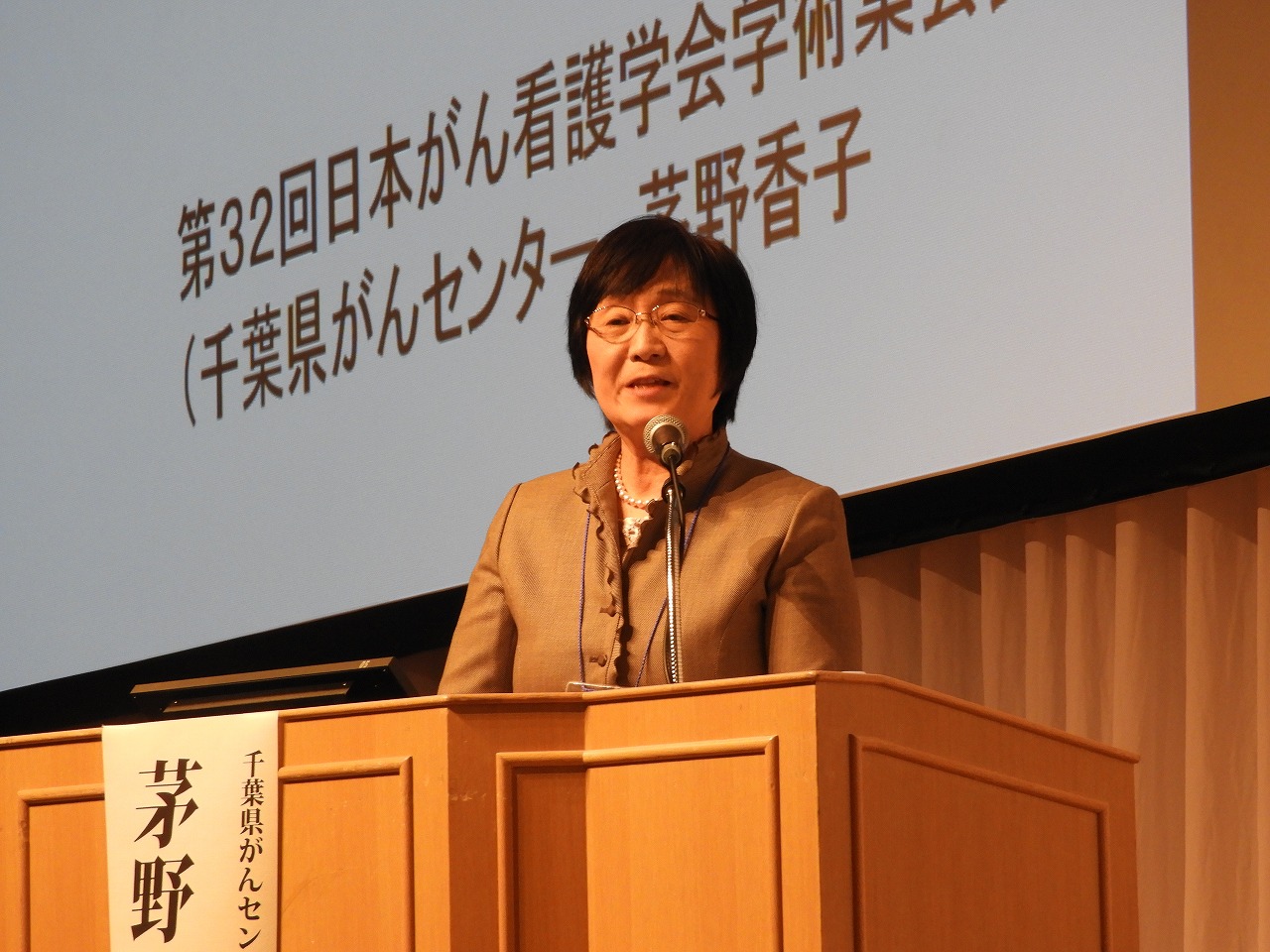
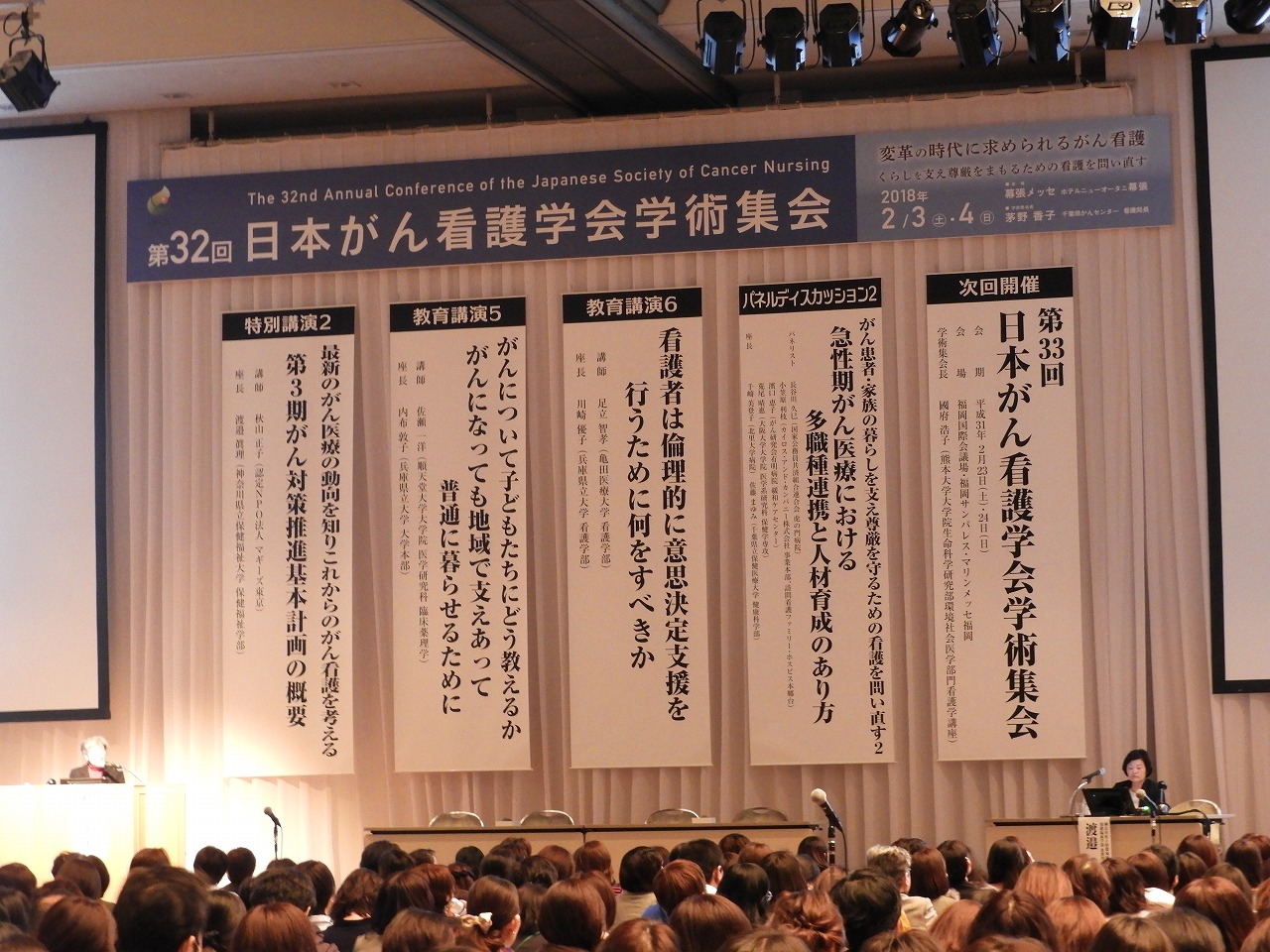
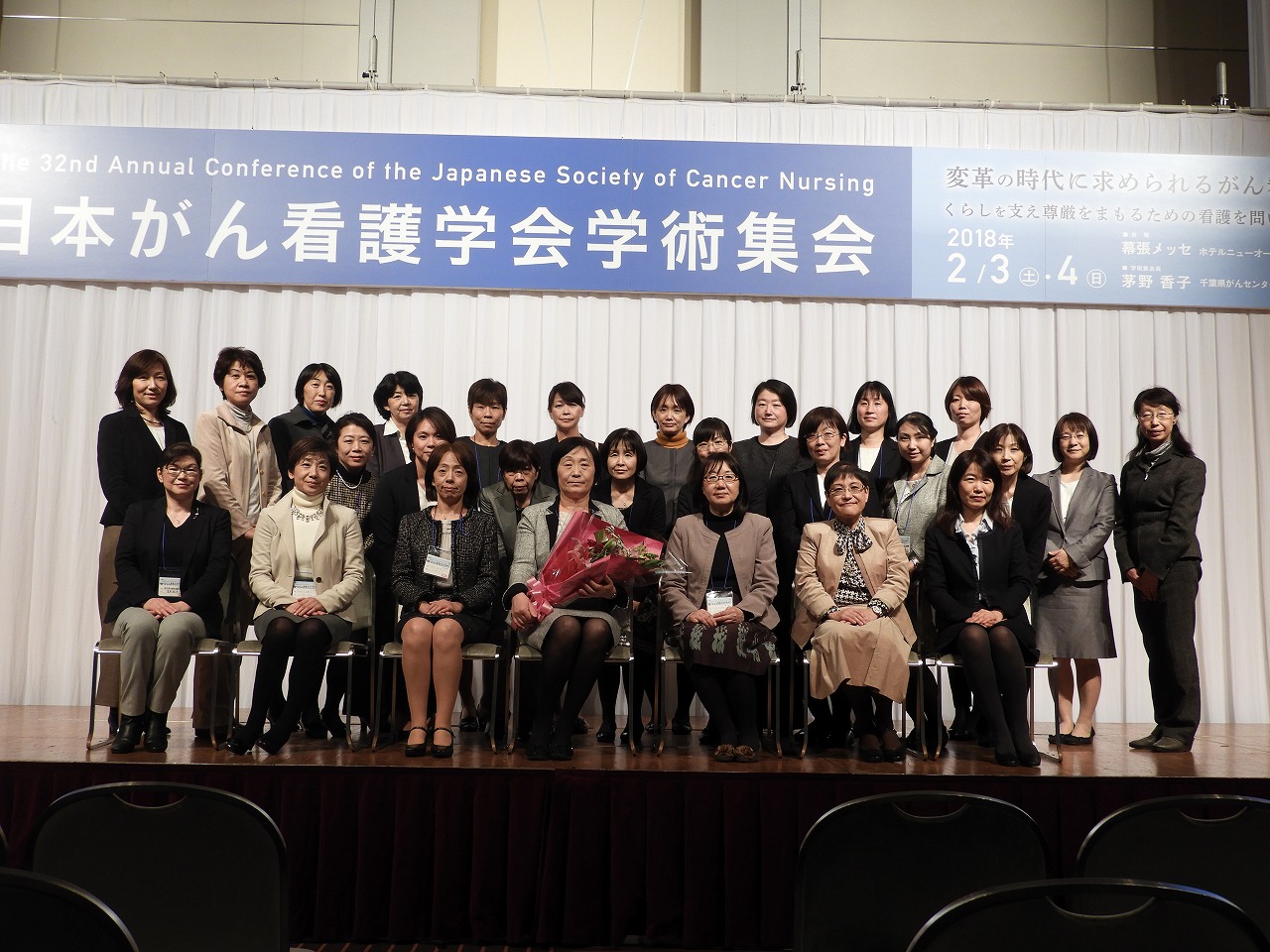
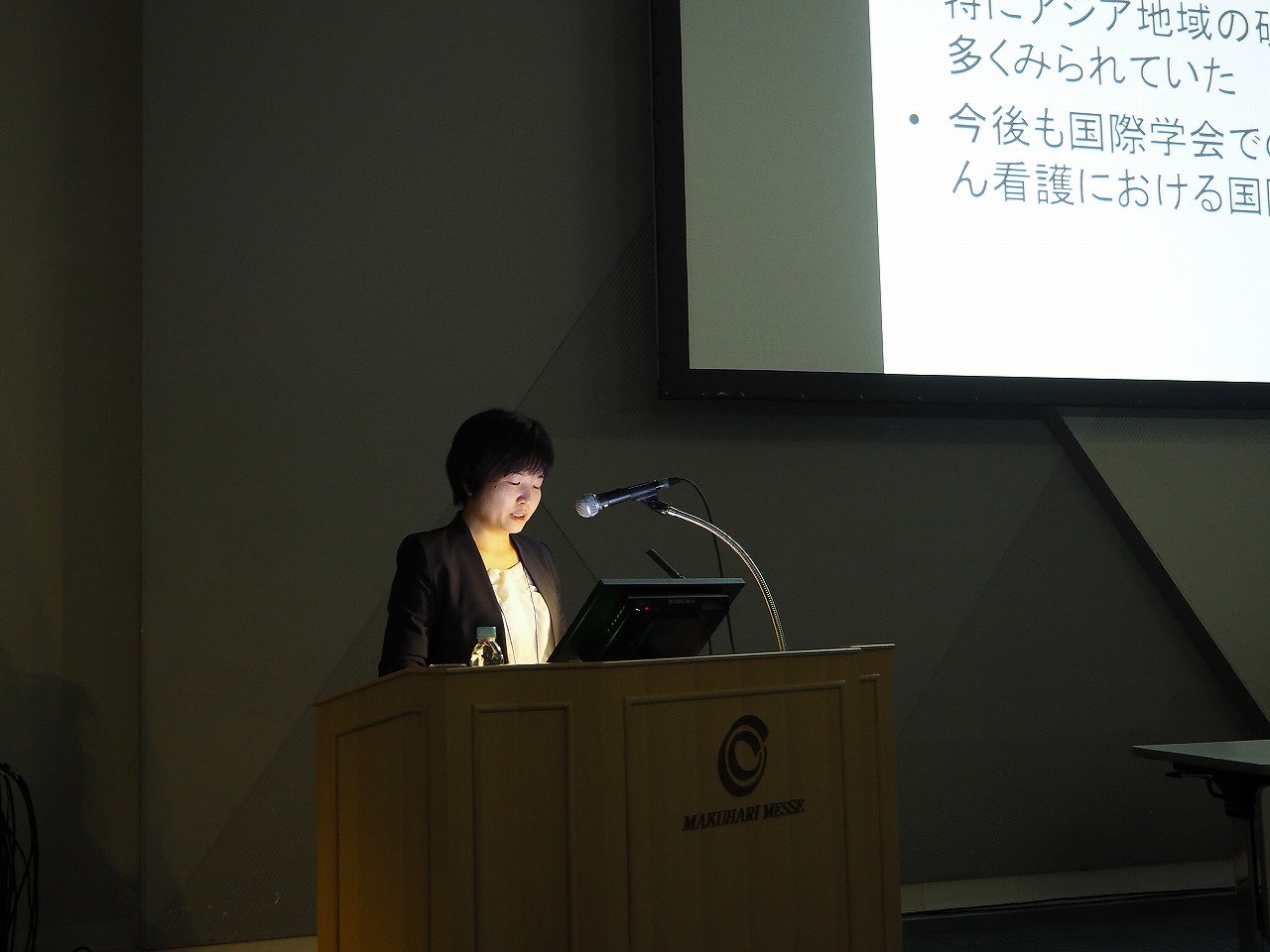
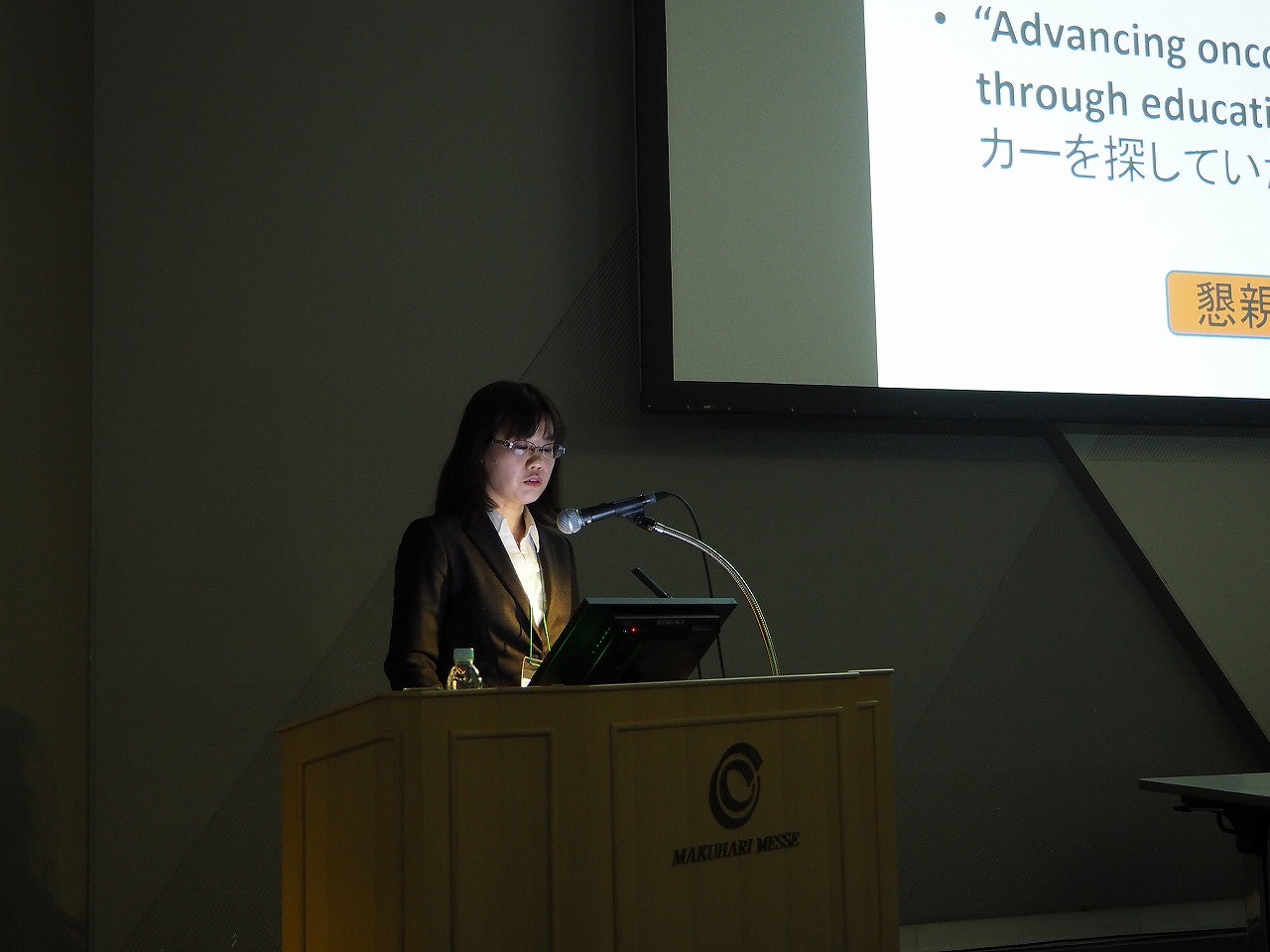
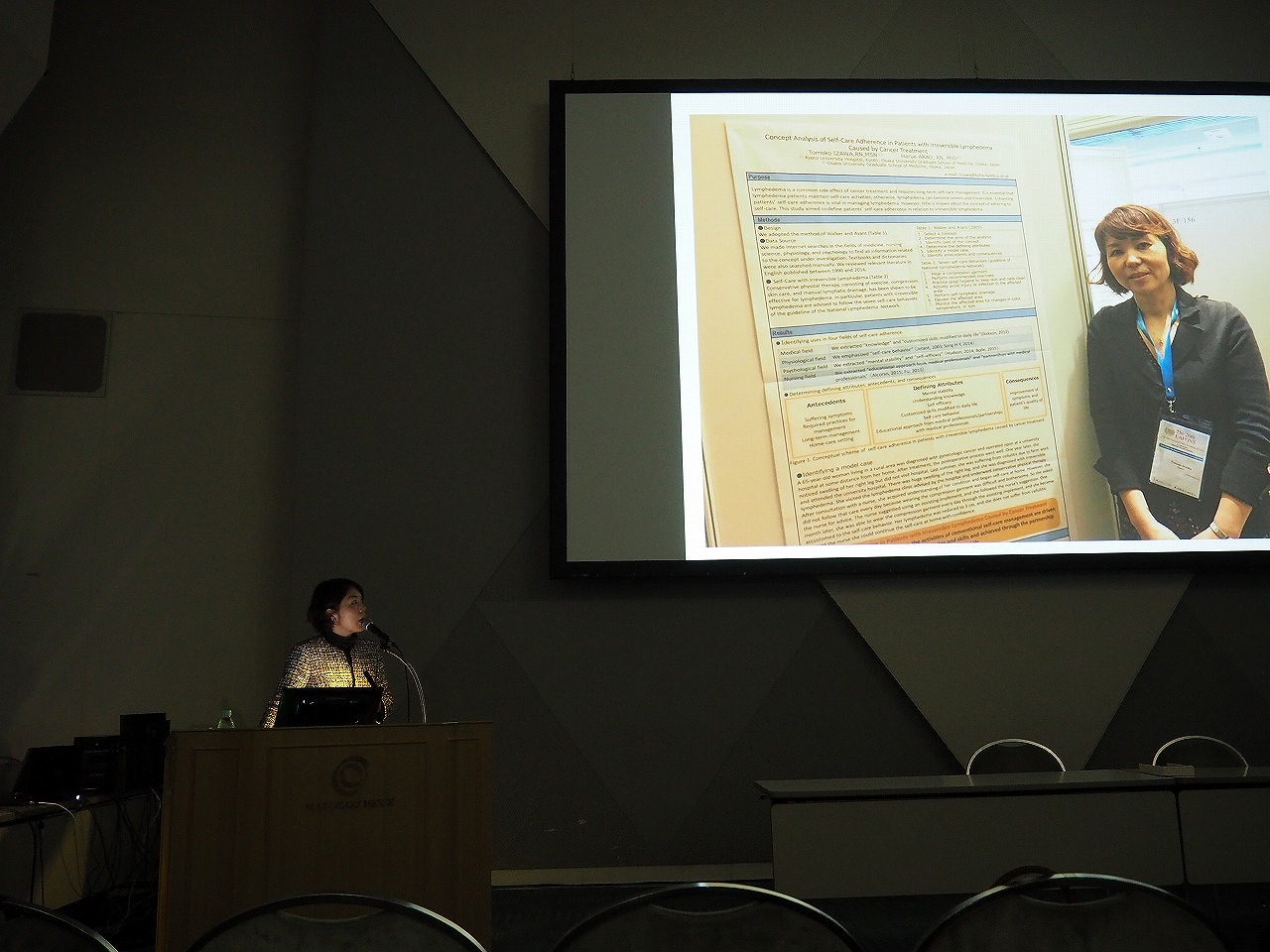
Report on the 31st Annual Conference of the Japanese Society of Cancer Nursing
The 31st Annual Conference of the Japanese Society of Cancer Nursing was held on February 4 and 5, 2017, with Professor Sawa Fujita (University of Kochi) serving as chairperson. The venue for the conference, Kochi Prefecture, is a place of abundant greenery, with forests covering 80% of the prefectural land mass. Numerous regular markets (street markets) are held in the central area of the prefecture, including some that have been running for 300 years or more. The natural environment and traditions of Kochi provided the backdrop for this highly successful conference, which attracted around 3,500 delegates.
The theme of this year’s conference was Expansive Progress in Cancer Nursing: Exploring the Unknown. Great changes in the medical environment and social conditions surrounding cancer nursing are making the future increasingly difficult to predict, and the time has come to think about the roles and contributions of cancer nursing. This conference set its sights on the advancement of cancer nursing through integration of different capabilities, including integration of cancer nursing practice, research, and education; integration with other types of nursing professionals; and integration with other fields of academic endeavor. With invited experts from other fields and speakers from outside Japan, conference delegates pursued learning beyond disciplinary and national borders and gained insights into challenges that need to be addressed in the future.
The guest speaker from overseas was Dr. Winnie KW So, president of the Asian Oncology Nursing Society. Dr. So also took the podium at the international activities committee session to give a lecture on the “Utilization of Chinese Medicine for Cancer Care in Hong Kong.” Participants expressed high levels of satisfaction regarding this session, which furnished an opportunity to consider the integration of Western and Eastern medicine.
There were also numerous general presentations—163 oral and 421 poster presentations—and the integration of delegates’ knowledge created a fresh sense for the potential of cancer nursing. A variety of other programs were conducted over the two days of the conference, and fruitful discussions were pursued from a diversity of standpoints.
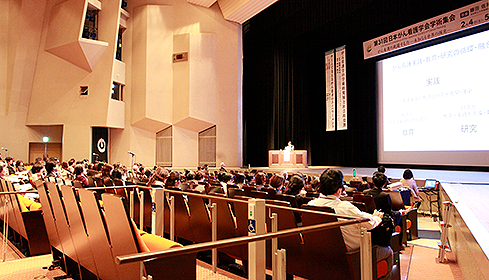
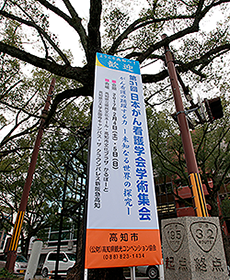
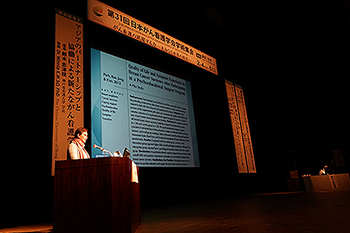
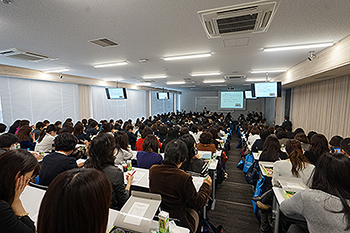
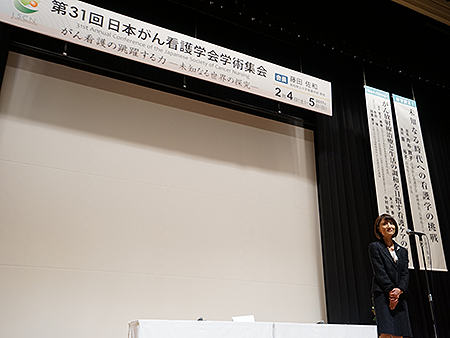
Report on the 30th Annual Conference of the Japanese Society of Cancer Nursing
The 30th Annual Conference of the Japanese Society of Cancer Nursing was held over two days on February 20 and 21, 2016, at Makuhari Messe and Hotel New Otani Makuhari in Chiba City. This conference, which commemorated the 30th anniversary of the establishment of the Japanese Society of Cancer Nursing (JSCN), included a variety of lectures and sessions pertaining to the theme, “Cancer nursing that challenges: Integration of research and practices to explore the future.” The chairperson of the conference, Kiyoko Kanda, is a professor in the Graduate School of Health Sciences, Gunma University. The conference was a great success, with more than 5,000 participants—mainly domestic cancer nurses, educators, and researchers—and 169 oral and 377 poster research presentations.
The chairperson’s lecture emphasized the importance of a more comprehensive assimilation of research and practices for organizing support systems to maintain and improve the quality of life, especially for elderly cancer patients and integrated community care. Japan is approaching 2025, when baby boomers will become 75 years old or older, and a major issue is constructing the community where people can live actively and safely, even when they are suffering with cancer in the super aging society. Considering the above issues, we had a chance to think about the challenges of cancer nursing in the future.
In addition, as a special project associated with this commemorative conference, an event entitled “JSCN 30th Anniversary Symposium: Nursing research for the next 10 years and its contribution to society” was held. President of JSCN, Hiroko Komatsu, served as the chair; topics included “the future of nursing research that takes into account the changes in cancer nursing,” presented by Harue Arao, a professor in the Graduate School of Medicine, Osaka University, and the chair of the international activities committee of JSCN. Ayako Mori, OCNS at National Cancer Center Hospital, made a presentation regarding “prospective cancer nursing,” and Dr. Shoho Hayashi, a former clinician-government official of the Japanese Ministry of Health, Labour and Welfare and the head of Office Hayashi, made a presentation about “the importance of cancer nursing for cancer control.” It was a valuable time for discussing directions to be taken in future cancer nursing research and clinical care. At the gala dinner, the ceremony to celebrate the 30th anniversary of the establishment of JSCN was held; it was a heartwarming party to declare the development of our academic society and its contributions to our society.
As the project of the international activities committee, we held an international exchange symposium regarding sharing of the concept of “team approached medicine” with an NP licensed in the US and a physician, both of whom have actual experience working in US hospitals. Presenters were Dr. Ryuichi Sekine, the chief of the Department of Palliative Care, Kameda Medical Center, and Miho Suzuki, a member of the international activities committee, Cancer Institute Hospital, Japanese Foundation for Cancer Research. The vice chair of the international activities committee, Atsuko Uchinuno, served as a moderator. Dr. Sekine talked about the essence of palliative care from the early stages, challenges in the development of a multidisciplinary team approach, and advantages of cancer nursing in the US from a physician’s perspective. His discussion emanated from his own experiences as a palliative care physician in cancer centers and university hospitals in the US. Committee member Suzuki reflected on her experiences of working as an NP in the US, the status of NPs in the US, the roles and autonomous activities of NPs, and the actual situations of team approached medicine; topics also included the importance of interprofessional collaboration. In the discussion, we were able to exchange opinions about what teamwork means and the difficulty of coordination as well as the barriers in other professions. It was a situation in which the discussion was never over, but we were able to close the symposium by reaching the consensus that the important issue is fostering the mentality for promoting a true team approached medicine. We are thankful that more than 100 participants joined the symposium. In the future, the international activities committee would like to continue to provide projects that integrate international perspectives and nursing practices and research.
